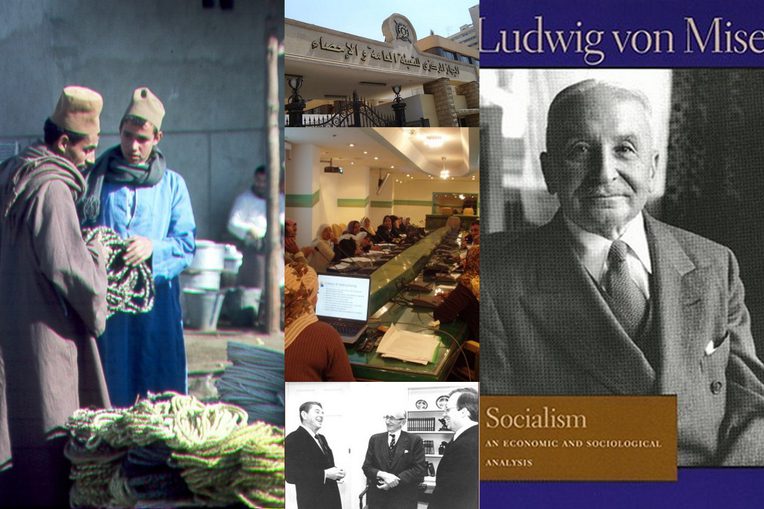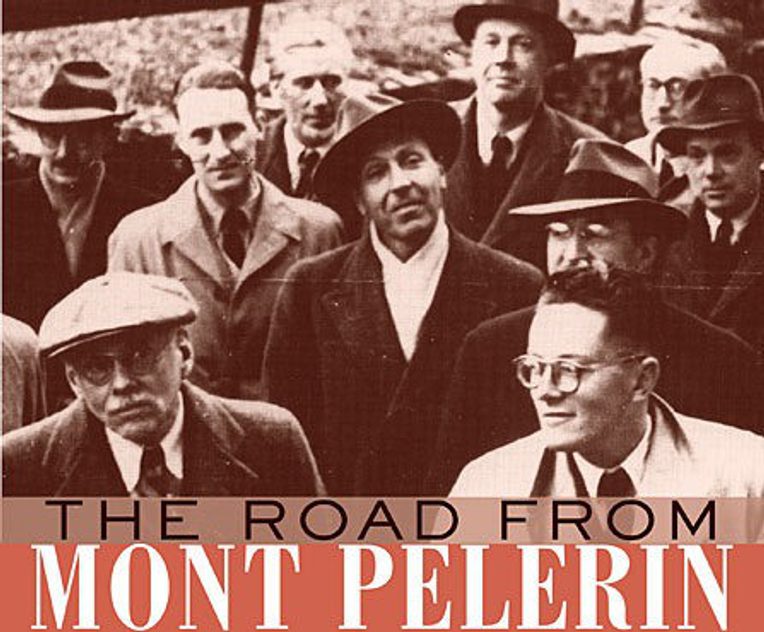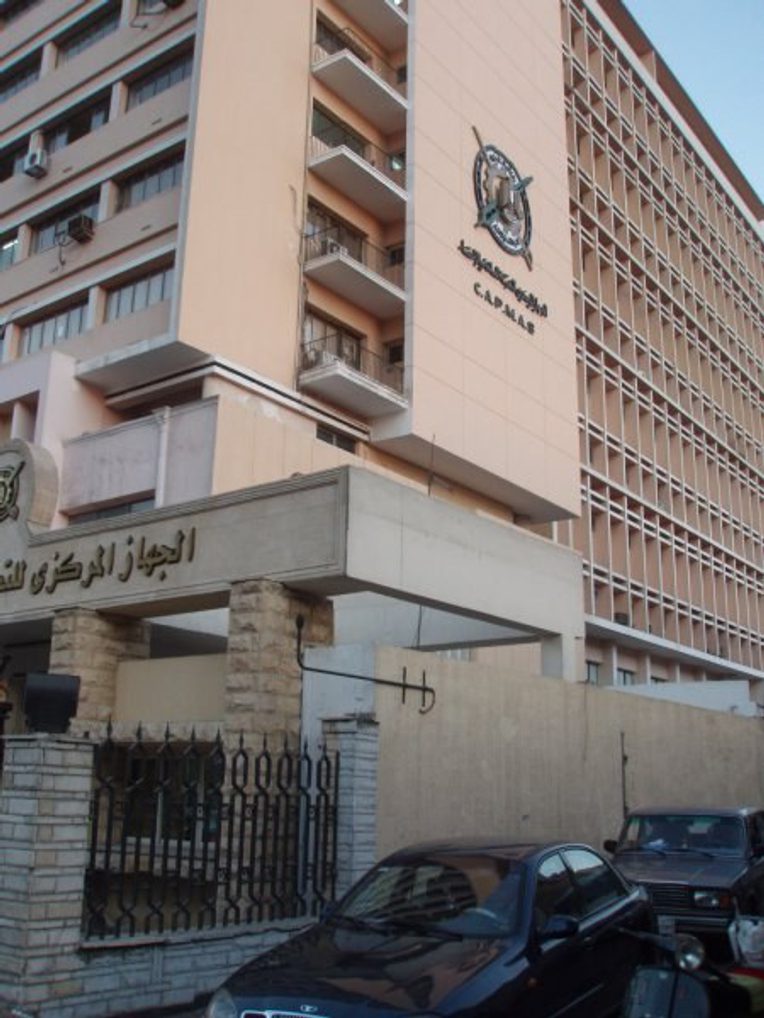This post builds on the research article “Before (and After) Neoliberalism: Tacit Knowledge, Secrets of the Trade, and the Public Sector in Egypt,” which was published in the February 2012 issue of the Society’s peer-reviewed journal, Cultural Anthropology.

Editorial Overview
Julia Elyachar’s essay in the February issue of Cultural Anthropology calls for anthropologists to take seriously everyday forms of knowledge and practice that have been central to the working of contemporary economic order we often characterize as “neoliberalism.” Neoliberalism, as we all know, is a political and economic philosophy that considers individual liberty and freedom the most desirable ends and means of a society. Proponents of this philosophy believe that strong property rights, free markets, and free trade are the best institutional means through which liberty and freedom can be best achieved.
Elyachar highlights the important place that ‘tacit knowledge’ occupies in the early philosophy of neoliberalism through a careful reading of the debates over the merits of free markets versus planned economies that were taking place in Central Europe in the 1920s. By ‘tacit knowledge’ she refers to everyday knowledge of business and financial practices that remain unspoken and unexpressed. Nevertheless, tacit knowledge is crucial to the working of economic exchange everywhere. She points out that Austrian School economists’ like Ludwig von Mises and FA von Hayek criticized and opposed centrally planned economic management for its inability to take into account the unsaid and invisible desires of individuals that prices in a free market economy reflect. F.A. von Hayek, a student of Mises, used this argument as the foundation for his famous claim that planning robbed people of their basic freedoms. “Freedom relied on price, which in a market situation could express even the unconscious desires and knowledge of an individual”.
Having established the centrality of ‘tacit knowledge’ to the philosophy of neoliberalism, Elyachar then tries to find out whether Von Hayek’s claim regarding ‘tacit knowledge’ working through the decisions people make in a free market situation, as opposed to the public sector, is supported by ethnographic evidence. Through an extended meditation on her fieldwork in the Egyptian public sector in the 1990s and in 2006, Elyachar highlights the crucial role of tacit knowledge in constituting an abstract world of banking and finance. Just as Hayek maintained, she argues that ‘tacit knowledge’ is indeed central to market exchange and decision-making. But Hayek, von Mises, and others were wrong in claiming that only individuals participating in a market system can draw on this kind of knowledge in market and economic life.

Elyachar suggests that tacit knowledge can be central to business practice in the public sector as well. She describes how one public sector banker relied on his senses or intuition to distinguish deserving loan seekers from fraudulent ones. This kind of intuition is part of a broader set of skills acquired through experience that are referred to in native concepts of Egyptian Arabic in everyday commercial parlance. On the other hand, her fieldwork shows that ‘tacit knowledge’ in the form of Fahlawah was deliberately excluded from the practices of free market-oriented lending agencies where, following Hayek, one might expect this type of knowledge to be valued more. On the whole, Elyachar cautions against seeing “neoliberalism” as endowed with sui generis agency. Instead, she encourages anthropologists to pay close attention to embodied business and financial practices through which abstract notions of free market and centrally planned economic decision-making get traction in the real world.
The February issue of Cultural Anthropology contains articles by Daniel Mains, Tom Looser, and Alexander Dent that discuss the processes of neoliberal globalization broadly. Anna Tsing's book Friction: an Ethnography of Global Connection (Princeton University Press, 2005) makes a similar but broader argument for the situatedness of the global and Karen Ho's "Situating Global Capitalisms" (2005) takes up this issue in the context of multinational financial corporations. Regarding anthropology of finance more generally, Bill Maurer's "Due diligence and 'reasonable man'" (2005), Karen Strassler's "The Face of Money," (2009), and VR Dominguez' "Representing value and the value of representation" raise important considerations.

Questions for Classroom Discussion
1) Elyachar's essay brings into focus conflicting assumptions regarding "rational economic activity", among other things. What do the classic ethnographies of economic exchange tell us about these assumptions regarding human behavior? Are non-market forms of exchange such as the Kula ring in Melanesia epiphenomena that are likely to be overtaken by the market form over time? Or, should we, following Marcel Mauss, consider market exchange itself a particular form among a more general process of exchange and reciprocity in human societies?
2) What are some of the key differences between thinkers like Marx and Karl Polanyi on the one hand and others like Hayek and Van Mises regarding the relationship between individual economic behavior and the workings of the economy and the society as a whole?
3) Elyachar's essay takes the idea of 'tacit knowledge' seriously and discusses it in the context of economic exchange. What is 'tacit knowledge', where does it reside, and how is it constituted? Can we extend Elyachar's argument and think of 'tacit knowledge' in other domains beside the economic, such as the bureaucracy?
4) Elyachar argues that the ability to deploy or bring 'tacit knowledge' into play need not be the exclusive property of market driven forms of exchange but can equally be present in non-market situations such as public sector banking in Egypt. Can we see parallels for this in other non-Western countries more broadly?
5) In Elyachar's ethnographic example, formally pro-market forms of financial exchange in the Egyptian private sector are not really good at taking advantage of 'tacit knowledge' of people.What are the consequences for the overall welfare of people if indeed government policies promoting free market and free trade do not really elicit appropriate 'signals' to the individuals via the price mechanism? Could it be that Egyptian and other governments' adoption of 'free market' policies such as deregulation of the banking sector may actually be detrimental to the optimal working of their economies and institutions?
Related Readings
Barry, A., T. Osborne, and N. Rose Eds. (1996) Foucault and Political Reason. Chicago: Chicago University Press.
Carrier, J.G. and D. Miller (2000) "From Private Virtue to Public Vice." In H. Moore Eds. Anthropological Theory Today. Cambrige, UK: Polity Press.
Edelman, M. and A. Haugerud Eds. (2005) Anthropology of Development and Globalization: From Classical Political Economy to Contemporary Neoliberalism. Oxford: Blackwell Publishing.
Elyachar, J. (2005) Markets of Dispossession: NGOs, Economic Development, and the State in Cairo. Durham, N.C: Duke University Press.
Friedman, Milton and R.D. Freedman (2002) Capitalism and Freedom. Chicago: University of Chicago Press.
Harvey, D. (2005) A Brief History of Neoliberalism. New York: Oxford University Press.
Rose, N. (1999) The Powers of Freedom: Reframing Political Thought. Cambridge, UK: Cambridge University Press.